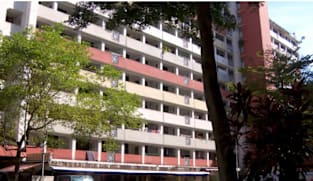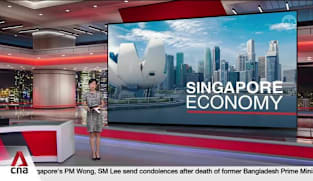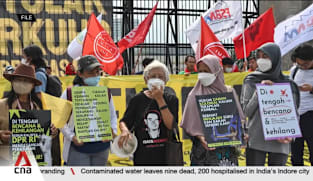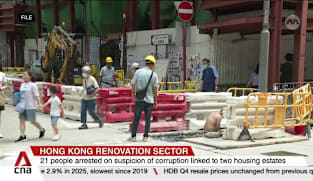Chan Chun Sing on electoral boundary review process
The Government opposes a motion moved by Progress Singapore Party NCMP Hazel Poa on reforming the electoral boundary review process as it is based on a fundamentally wrong premise, Minister-in-charge of the Public Service Chan Chun Sing told Parliament on Wednesday (Aug 7). He said the motion suggests the current process is not transparent or fair, and seeks to review it in the interests of political parties. Mr Chan said electoral boundaries are drawn not to serve political parties’ interests, but so that voters are best served by their MPs. Addressing concerns raised about gerrymandering, Mr Chan emphasised that the Electoral Boundaries Review Committee (EBRC) does not have access to voting information and hence does not make its recommendations based on voting patterns; it does not consult the People's Action Party (PAP) or any other political party; and it comprises senior civil servants with no party allegiances. If political parties get involved, said Mr Chan, “it will politicise the whole process and not bring us forward, but bring us backwards”. He explained why any attempts at gerrymandering are unlikely to be effective in the Singapore context and why getting the EBRC to be chaired by a High Court judge is unlikely to resolve concerns about political interference, as well as why implementing major and minor electoral boundaries would not work. Mr Chan said, “What (the opposition) are really saying ... comes down to this - we almost won this constituency, we think we can take it next time, so do not touch it, because we want to try again. Paradoxically, if indeed the EBRC takes these political considerations into account, then this would certainly qualify as gerrymandering.” Citing survey findings that showed Singaporeans’ satisfaction with the way democracy is working, the minister urged all candidates to fight elections on substance and by earning voters’ trust with concrete actions, “rather than thinking about excuses for not being able to do so”. He said the test of any electoral system is not its theoretical merits, but whether in practice it has worked for the country - and by that measure, Singapore’s system is “reasonably good”. Trust levels, including in Government, are high; and even the opposition would concede that the PAP governments have served the people well, he said. Mr Chan said “intentionally or unintentionally, this motion sows distrust and disaffection. This is disastrous for our political system and for Singaporeans.” In his speech, he also revealed that the Prime Minister has not convened the EBRC ahead of the next General Election.
The Government opposes a motion moved by Progress Singapore Party NCMP Hazel Poa on reforming the electoral boundary review process as it is based on a fundamentally wrong premise, Minister-in-charge of the Public Service Chan Chun Sing told Parliament on Wednesday (Aug 7). He said the motion suggests the current process is not transparent or fair, and seeks to review it in the interests of political parties. Mr Chan said electoral boundaries are drawn not to serve political parties’ interests, but so that voters are best served by their MPs. Addressing concerns raised about gerrymandering, Mr Chan emphasised that the Electoral Boundaries Review Committee (EBRC) does not have access to voting information and hence does not make its recommendations based on voting patterns; it does not consult the People's Action Party (PAP) or any other political party; and it comprises senior civil servants with no party allegiances. If political parties get involved, said Mr Chan, “it will politicise the whole process and not bring us forward, but bring us backwards”. He explained why any attempts at gerrymandering are unlikely to be effective in the Singapore context and why getting the EBRC to be chaired by a High Court judge is unlikely to resolve concerns about political interference, as well as why implementing major and minor electoral boundaries would not work. Mr Chan said, “What (the opposition) are really saying ... comes down to this - we almost won this constituency, we think we can take it next time, so do not touch it, because we want to try again. Paradoxically, if indeed the EBRC takes these political considerations into account, then this would certainly qualify as gerrymandering.” Citing survey findings that showed Singaporeans’ satisfaction with the way democracy is working, the minister urged all candidates to fight elections on substance and by earning voters’ trust with concrete actions, “rather than thinking about excuses for not being able to do so”. He said the test of any electoral system is not its theoretical merits, but whether in practice it has worked for the country - and by that measure, Singapore’s system is “reasonably good”. Trust levels, including in Government, are high; and even the opposition would concede that the PAP governments have served the people well, he said. Mr Chan said “intentionally or unintentionally, this motion sows distrust and disaffection. This is disastrous for our political system and for Singaporeans.” In his speech, he also revealed that the Prime Minister has not convened the EBRC ahead of the next General Election.



















